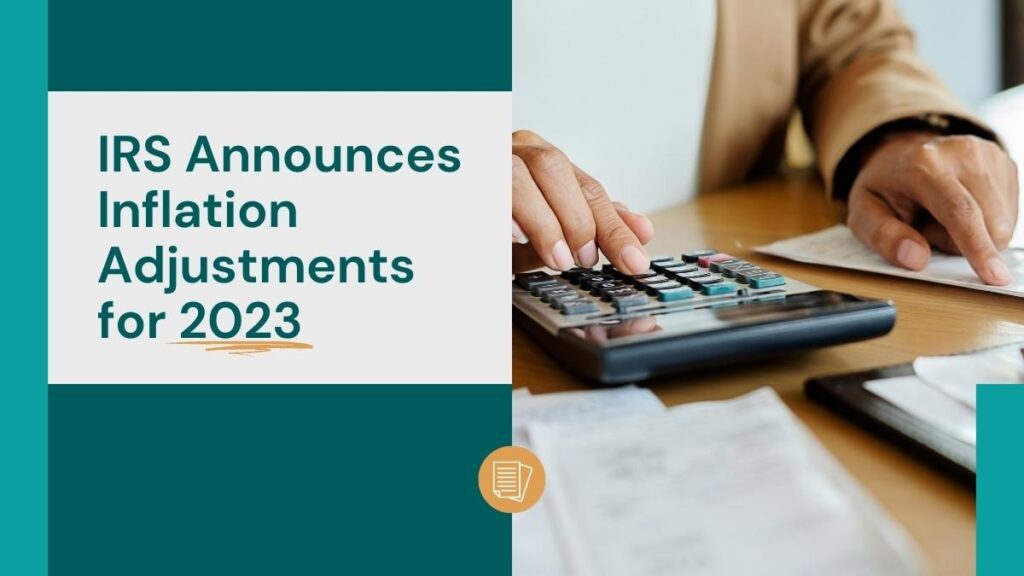
Weekly Market Insights – January 23, 2023
Mixed Results Following Weak Economic Data
Presented by Elsass Financial Group
| Stocks showed mixed results last week as recession fears resurfaced in response to weak economic data and a tepid start to a new corporate earnings season.
The Dow Jones Industrial Average skidded 2.70%, while the Standard & Poor’s 500 declined 0.66%. But the Nasdaq Composite index gained 0.55% for the week. The MSCI EAFE index, which tracks developed overseas stock markets, lost 0.50%.1,2,3 |
 |
 |
Mixed Economic DataStocks weakened to start the week amid discouraging corporate earnings and troubling economic data. Disappointing retail sales and manufacturing reports sparked concerns that the Fed may have gone too far in hiking rates, while a drop in initial jobless claims diminished chances of a near-term pause in rate hikes. Welcome news from two big technology names on Friday powered a strong rally that mixed significant indices. The start of the earnings season was a drag on investor sentiment. While 69% of the S&P 500 constituent companies that reported earnings by Thursday (48 companies) exceeded expectations, the percentage of “beats” is below the three-year average. More concerning, however, was that average earnings declined by more than 2%.4 Consumers RetrenchRetail sales fell 1.1% in December, capping an overall weak holiday shopping season. November retail sales were revised downward to -1.0%, from the earlier estimate of -0.6%. Compared to November-December 2021, sales increased by 5.3%, below the 6 to 8% increase expected by The National Retail Federation.5,6 Many economists viewed these lackluster numbers as evidence of a weakening consumer. A more cautious consumer raises more concerns about a recession at some point this year since the primary driver of U.S. economic growth is consumer spending. This Week: Key Economic DataTuesday: Purchasing Managers’ Index Composite. Thurday: Gross Domestic Product (GDP). Durable Goods Orders. New Home Sales. Jobless Claims. Friday: Consumer Sentiment. Source: Econoday, January 20, 2023 This Week: Companies Reporting EarningsTuesday: Microsoft Corporation (MSFT), General Electric Company (GE), Verizon Communications, Inc. (VZ), Johnson & Johnson (JNJ), Lockheed Martin Corporation (LMT), Texas Instruments, Inc. (TXN), Union Pacific Corporation (UNP), D.R. Horton, Inc. (DHI), Raytheon Technologies Corporation (RTX). Wednesday: AT&T, Inc. (T), The Boeing Company (BA), Tesla, Inc. (TSLA), International Business Machines Corporation (IBM), Lam Research Corporation (LRCX), Abbott Laboratories (ABT), CSX Corporation (CSX), NextEra Energy, Inc. (NEE), KimberlyClark Corporation (KMB), Norfolk Southern Corporation (NSC), General Dynamics (GD). Thursday: Intel Corporation (INTL), Visa, Inc. (V), Mastercard, Inc. (MA), Blackstone, Inc. (BX), Northrop Grumman Corporation (NOC), Southwest Airlines Co. (LUV), Rockwell Automation, Inc. (ROK). Friday: Chevron Corporation(CVX), HCA Healthcare, Inc. (HCA), American Express Company (AXP), ColgatePalmolive Company (CL). Source: Zacks, January 20, 2023 |
 |
|
“Writing is thinking on paper.” – William Zinsser |
 |
Beware Of Improper Employee Retention Credit ClaimThe employee retention credit (ERC) is a refundable tax credit for businesses that continued paying employees while shut down due to the COVID-19 pandemic or had significant declines in gross receipts from March 13, 2020–December 31, 2021. While this tax credit can be a great benefit for employers, there have been third parties promoting improper ERC claims. Employers should be wary of third parties advising them to claim the employee retention credit when they may not qualify. These third parties often charge hefty upfront fees or a fee contingent on the refund amount. There are several conditions employers must meet to be eligible for an ERC. If you know of any improper ERC claims, submit Form 3949-A, Information Referral, to the IRS. * This information is not intended to be a substitute for specific individualized tax advice. We suggest that you discuss your specific tax issues with a qualified tax professional. Tip adapted from IRS.gov7 |
 |
What Is Dry Brushing?Let’s face it: the cold winter weather is not friendly to our skin. If you’re struggling with dry, unhappy skin this winter, consider dry brushing! Dry brushing involves taking a specialized brush and rubbing it on your skin. You can use a dry brush throughout most areas of your body, and the goal is to gently exfoliate your skin to get rid of dry, flakey skin and encourage blood flow. Dry brushing is a favorite skincare routine year-round, but it can be especially beneficial in the winter when your skin might be extra dry. When dry brushing, make sure to use an appropriate brush and do it gently so as not to cause damage to your skin. Talk to your dermatologist before starting dry brushing if you have sensitive skin. Tip adapted from TODAY. com8 |
 |
|
Take one letter out of a 7-letter word and it becomes longer. What is this word? Last week’s riddle: You need to take a gallon of oil out of a barrel of oil. How can you do it using only a 3-gallon container and a 5-gallon container? Answer: Fill the 3-gallon container with oil and pour it into the 5-gallon container. Then fill the 3-gallon container again and use it to fill the 5-gallon container the rest of the way. One gallon will be left in the 3-gallon container. |
 |
 |
|
St. Johns Suspension Bridge, Portland, Oregon |
Footnotes And Sources
2. The Wall Street Journal, January 20, 2023 3. The Wall Street Journal, January 20, 2023 4. The Earnings Scout, January 19, 2023 5. Census.gov, January 18, 2023 6. The Wall Street Journal, January 18, 2023 7. IRS.gov, November 7, 2022 8. TODAY, January 31, 2015 |
| Investing involves risks, and investment decisions should be based on your own goals, time horizon, and tolerance for risk. The return and principal value of investments will fluctuate as market conditions change. When sold, investments may be worth more or less than their original cost.
The forecasts or forward-looking statements are based on assumptions, may not materialize, and are subject to revision without notice. The market indexes discussed are unmanaged, and generally, considered representative of their respective markets. Index performance is not indicative of the past performance of a particular investment. Indexes do not incur management fees, costs, and expenses. Individuals cannot directly invest in unmanaged indexes. Past performance does not guarantee future results. The Dow Jones Industrial Average is an unmanaged index that is generally considered representative of large-capitalization companies on the U.S. stock market. Nasdaq Composite is an index of the common stocks and similar securities listed on the NASDAQ stock market and is considered a broad indicator of the performance of technology and growth companies. The MSCI EAFE Index was created by Morgan Stanley Capital International (MSCI) and serves as a benchmark of the performance of major international equity markets, as represented by 21 major MSCI indexes from Europe, Australia, and Southeast Asia. The S&P 500 Composite Index is an unmanaged group of securities that are considered to be representative of the stock market in general. U.S. Treasury Notes are guaranteed by the federal government as to the timely payment of principal and interest. However, if you sell a Treasury Note prior to maturity, it may be worth more or less than the original price paid. Fixed income investments are subject to various risks including changes in interest rates, credit quality, inflation risk, market valuations, prepayments, corporate events, tax ramifications and other factors. International investments carry additional risks, which include differences in financial reporting standards, currency exchange rates, political risks unique to a specific country, foreign taxes and regulations, and the potential for illiquid markets. These factors may result in greater share price volatility. Please consult your financial professional for additional information. This content is developed from sources believed to be providing accurate information. The information in this material is not intended as tax or legal advice. Please consult legal or tax professionals for specific information regarding your individual situation. This material was developed and produced by FMG Suite to provide information on a topic that may be of interest. FMG is not affiliated with the named representative, financial professional, Registered Investment Advisor, Broker-Dealer, nor state- or SEC-registered investment advisory firm. The opinions expressed and material provided are for general information, and they should not be considered a solicitation for the purchase or sale of any security. Copyright 2023 FMG Suite. |









